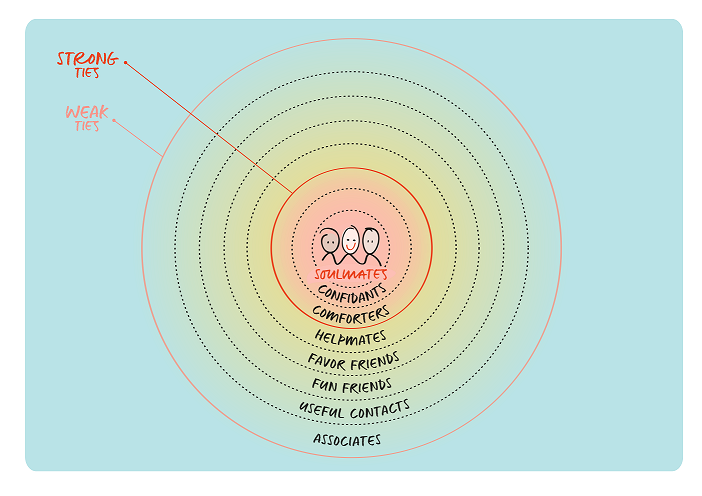Networking might sound trendy or even a bit mysterious. This is one of the words we would certainly see in an article about how to be successful, though is it really something new, or did we just reinvent the wheel? The unvarnished truth is somewhere in the middle because the networks always change.
Everybody has a network. Some networks are small, some are huge, to some of us a network is very colourful and to some, it is more monochrome. Some of us have a geographically definable network, while some people have a global one. There isn’t any official good or bad network, even everybody thinks about it differently.
Among the different network types, it is fantastic to have a global network with multicultural actors from all over the world, but it is difficult to start a local action or even just drink an afternoon coffee with them if they are so far away. As you were an international student, joining the alumni network is a good idea. Even so despite the huge geographical distance, you can easily keep in contact with them, thanks to the different devices and platforms.

On the other hand, it is comfortable and safe to have a small local network with the same kind of interests, but then your chances to gain a wider perspective or to have new influences and inspiration from different sub-cultures are limited. There are debates about the importance of the weaker and stronger ties in our network.
Paul Adams, the Global Brand Experience Manager at Facebook, says: when people are looking for information and opinions from others they will look to their stronger ties first – the people who are at the core of their network. He mentions 7 types of relationships appearing in our network.
The Associates don’t know each other well and only share a common activity, such as a hobby or a sport. Fun friends socialize together primarily for fun without a deep relationship to provide each other with emotional support. Then the Favour friends support each other in a functional manner but not in an emotional manner.

There are the Helpmates who display characteristics of both favour friends and fun friends; they socialize together for fun and also help each other in a functional manner. The Comforters are similar to helpmates but with a deeper level of emotional support and the Confidantes disclose personal information and enjoy each other’s company, but aren’t always in a position to offer practical help. Finally, the Soulmates display all of these elements and they are the ones to whom we are the closest.
Weaker ties can provide information and tools that you cannot reach in your social environment, while stronger ties are the ones we can count on in the daily challenges of life. The question is, what is your aim with your network? What do you need more?

As an Alumni Network Hungary member, you studied in great Hungarian universities, you had a vibrant, cultural life and then you returned home or to another country. Maybe you arranged a local alumni network to keep in contact with us and your friends. This is essential to strengthen your community-building skills. Those skills do not just help you to enlarge your groups but widen your focus and own commitment to our alumni network.
Sources:
Liz Spencer - Ray Pahl (2006): Rethinking Friendships: Hidden Solidarities Today (Princeton)